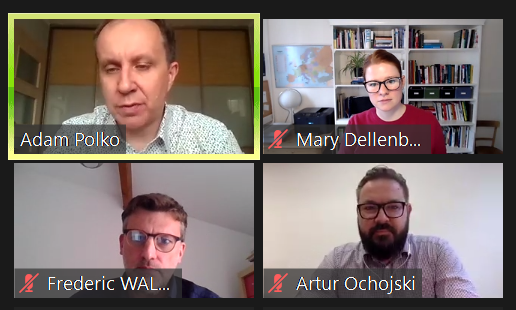Summary and key conclusions of the #EURegionsWeekUniversity session: Commons in European cities

The recording of this session is now available on the REPLAY section of the event web: https://euregionsweek2020-video.eu/video/euregionsweekuniversity-commons-in-european-cities
See the session details on the #EURegionsWeek website
Adam Polko, Lecturer, University of Economics in Katowice, Poland.
Artur Ochojski, Lecturer, University of Economics in Katowice, Poland.
Frederic Wallet, Senior Researcher, INRAE, France.
European cities are today laboratories for diverse forms of collective action driven by citizens. Self-organised and gathered under the term of commons, people participate in the dynamics of cities. They reflect an aspiration towards a more localised, inclusive and sustainable development. The workshop reported on European practices; how they challenge urban governance as well as how they offered avenues for thinking about more sustainable cities.
During this session invited speakers from France, Germany and Poland presented cutting edge results of international research projects as well as practical experience on commons and their governance. The most important questions we tried to deal with were the following: How do commons develop across European cities and how do they contribute to social innovations, citizen empowerment and territorial development? What are design principles of long-term, self-organised institutions in European cities? How can local government support and encourage commons initiatives?
A take-away message
- urban commons are shared resources located in cities and managed by the users in non-profit-oriented and prosocial way;
- urban commons approach is focused more on the interest of use value over exchange value;
- urban commons approach should be included in creating social innovations, ecological transition and territorialized social cohesion;
- we need to combine Ostrom’s governance of commons with territorial governance approach such as proximity relation, distance anchoring etc.
“One of the promising options is for cities to look for municipal resources and combine that with seed funding and money from European Social Fund. My ideal solution is to managed that by participatory budgeting format, so it is truly embedding commons” (Mary Dellenbaugh-Losse)
“If we want to make a commons strategy really including marginalized people, we have to make them part of the commons initiatives ” (Frederic Wallet)
“Experimenting with shared urban resources is a good way to design principles of governing the urban commons. Urban communities should, under predefined conditions, be able to introduce and test solutions conducive to improving the quality of life in the city” (Artur Ochojski)
The #EURegionsWeekUniversity Webinar Series was organised by the European Commission, Directorate-General for Regional and Urban Policy (DG REGIO) and the European Committee of the Regions (CoR), advised by the Regional Studies Association European Foundation (RSA Europe), and with the cooperation of the European Regional Science Association (ERSA) and the Association of European Schools of Planning (AESOP).
